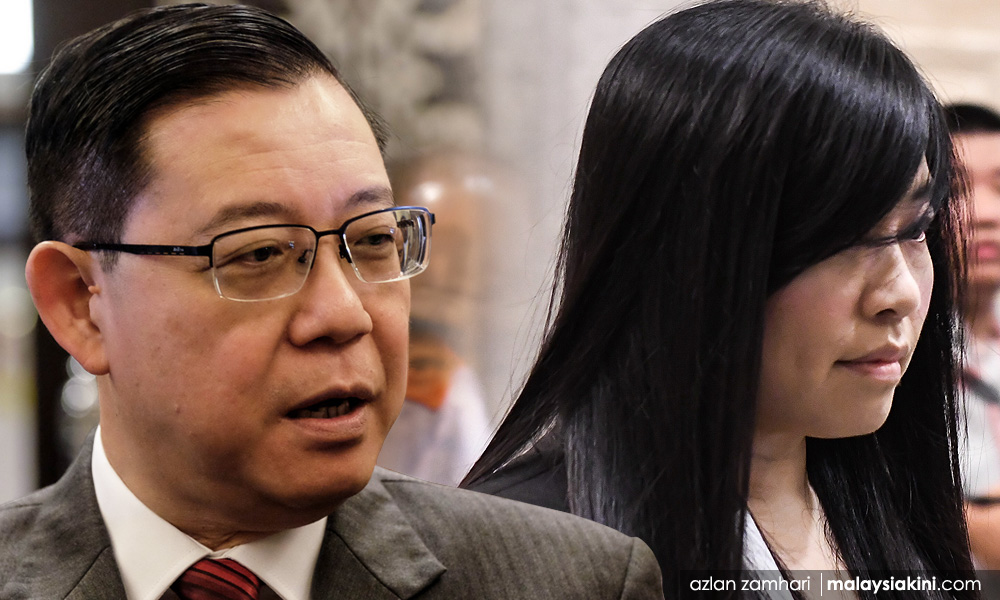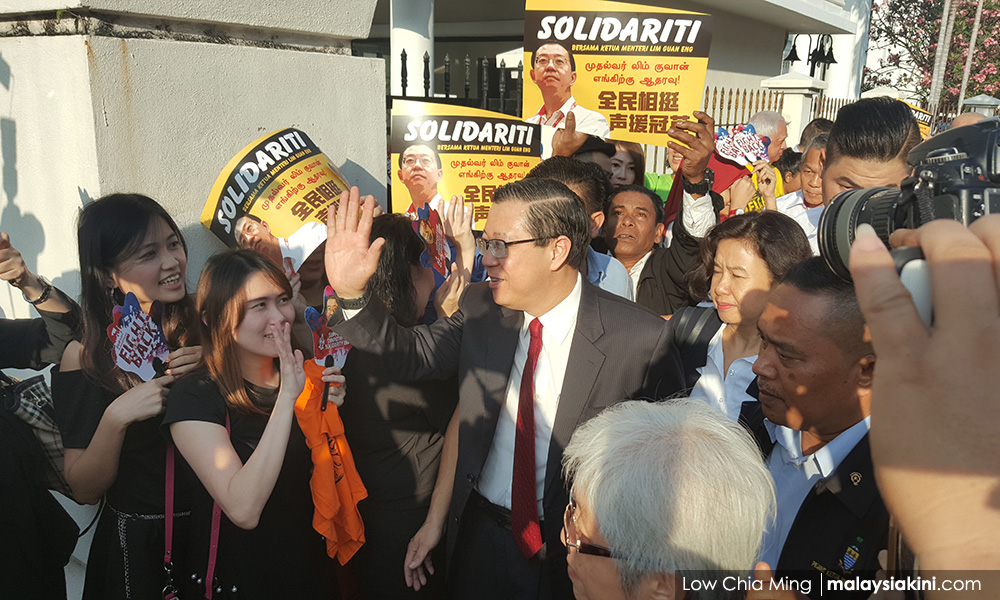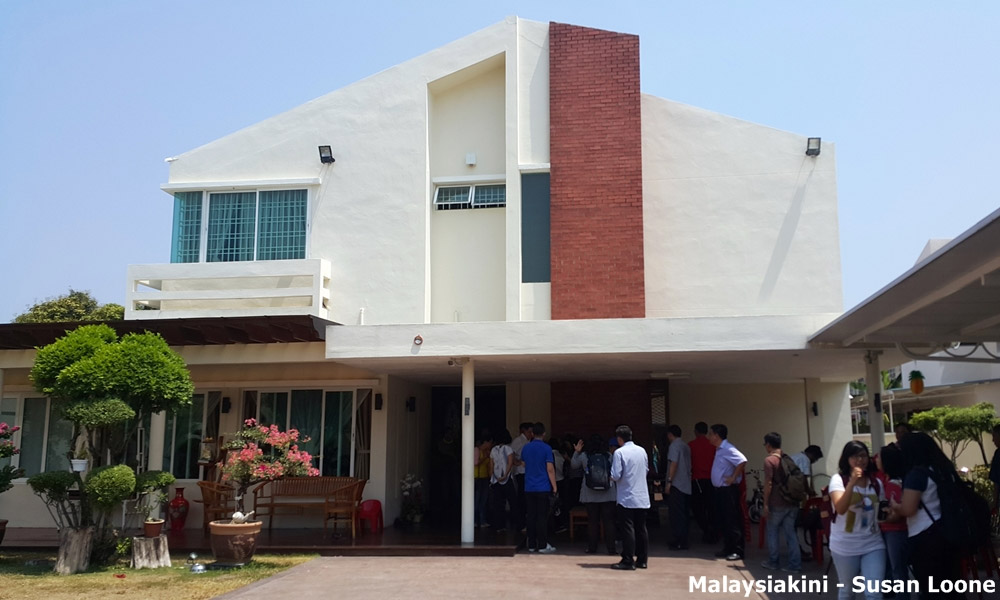
QUESTION TIME | While sedition charges were withdrawn by the attorney-general against three people recently, it does not necessarily mean that criminal charges against finance minister Lim Guan Eng should be similarly withdrawn.
There are major differences between the two. One involves sedition, the other is a criminal case.
The Sedition Act, which came into effect in 1948, is a relic of the colonial administration which was aimed at controlling the populace and fighting communist terrorists. Charges can be very vague and refers to offences which may have a “seditious tendency”. These include phrases such “bring into hatred or contempt”, “excite disaffection”, “excite the subjects”, “raise discontent”, “promote feelings of ill will”, etc.
The law is deliberately vague and allows all manner of legitimate dissension to be labelled seditious because it may have a seditious tendency. Even truth may not be a valid defence if it has a seditious tendency. The intention is irrelevant “if in fact the act had, or would, if done, have had, or the words, publication or thing had a seditious tendency.”
It is not surprising that such a wide and clearly repressive law has been used time and again by successive BN government to curb the voice of dissidents and the opposition.
It is, without a doubt, a rather unfair law and should have been gotten rid off a long time ago. It is a matter of regret that it remains in the statute books and there seems to be no move yet to remove these and other repressive laws.
With the change in government and an independent attorney-general, there is no longer any need to use these and the charges have been withdrawn.
The three involved who were acquitted last month were political cartoonist Zulkiflee SM Anwar Ulhaque, more popularly known as Zunar, Padang Serai MP N Surendran and Deputy Rural Development Minister R Sivarasa. All three were charged in relation to comments made regarding PKR de facto leader Anwar Ibrahim’s conviction in the Sodomy II case.


But a criminal charge is different, it is specific. Although there are allegations that the charges against former Penang chief minister Lim Guan Eng were politically motivated, there are specific charges made which are not as broad ranging or as subjective as for sedition charges.
And since these charges have been made and presented before court too, it would raise many questions if the charges were withdrawn without good cause in the middle of the trial by the prosecution, including whether a change of government has meant the attorney-general’s chambers have been influenced to withdraw the charges.
Tommy Thomas, having represented Lim before, has recused himself from any decision making as far as the case against Lim is concerned, with the AG’s chambers issuing a statement signed jointly by its solicitor-general and solicitor-general 2. That is the right tone to set for the decision, so that there will no question of any conflict.
"Having regard to the clients he acted for, and the adverse parties in such litigation when he was practising in the Bar, the attorney-general's position is to adhere to the two solutions that the law provides in such circumstances," the statement said.
If he is involved in cases, being personal in nature, such as that involving a counsel, or friend the AG will recuse himself altogether, the statement said.
The decision on such a case will then be jointly taken by the solicitor-general and the solicitor-general II, with the consultation of other senior members of the chambers, if need be.
The second instance is if the AG determines that recusal is not required. He would then declare his interest to other members of the decision-making team – which will be recorded by them. The AG will then participate as a member of the team in such matters.
"Regarding Lim Guan Eng's prosecution, because the case has received so much publicity, we wish to report that the attorney-general recused himself in all deliberations, and will not be involved in any decision that the AGC will take in that pending case," the statement added.


That’s the right thing to do and the AG’s chambers would have to decide whether to proceed or not on the merits of the case.
On June 30, 2016, Lim claimed trial on charges linked to the conversion of state land from agriculture to residential and the purchase of a plot of land and bungalow at below the market value.
If convicted, Lim faces imprisonment of up to 20 years and a fine of up to five times the sum or value of the bribe, or RM10,000, whichever is higher.
He faces a second charge of using his position to obtain for himself a plot of land and a bungalow (photo), located at No 25, Jalan Pinhorn, George Town, on July 28, 2015, from Phang Li Koon for RM2.8 million, which was alleged to be below the market value of RM4.27 million. If convicted, Lim faces a jail term for up to two years, or a fine, or both.
These are very specific and serious criminal charges that he has to answer.
Considering that the trial has already proceeded with many witnesses having already been called, it would be wise to let the proceeding go to its conclusion.
That would do two things simultaneously: one, it would remove any suspicion that the government is using its influence with the AG’s chambers to drop the case. Two, it would help to restore faith in the revamped judicial system – if Lim is not guilty, the courts will find him to be so.
The courts will hear on Sept 3 whether the prosecution decides to withdraw the case against Lim or to go ahead.
P Gunasegaram believes in this statement by Lord Hewart C.J. in R v Sussex Justices’ Case [1924] 1 KB 256: “It is not merely of some importance, but is of fundamental importance that justice should not only be done, but should manifestly and undoubtedly be seen to be done.” E-mail : t.p.guna@gmail.com -Mkini



No comments:
Post a Comment
Note: Only a member of this blog may post a comment.